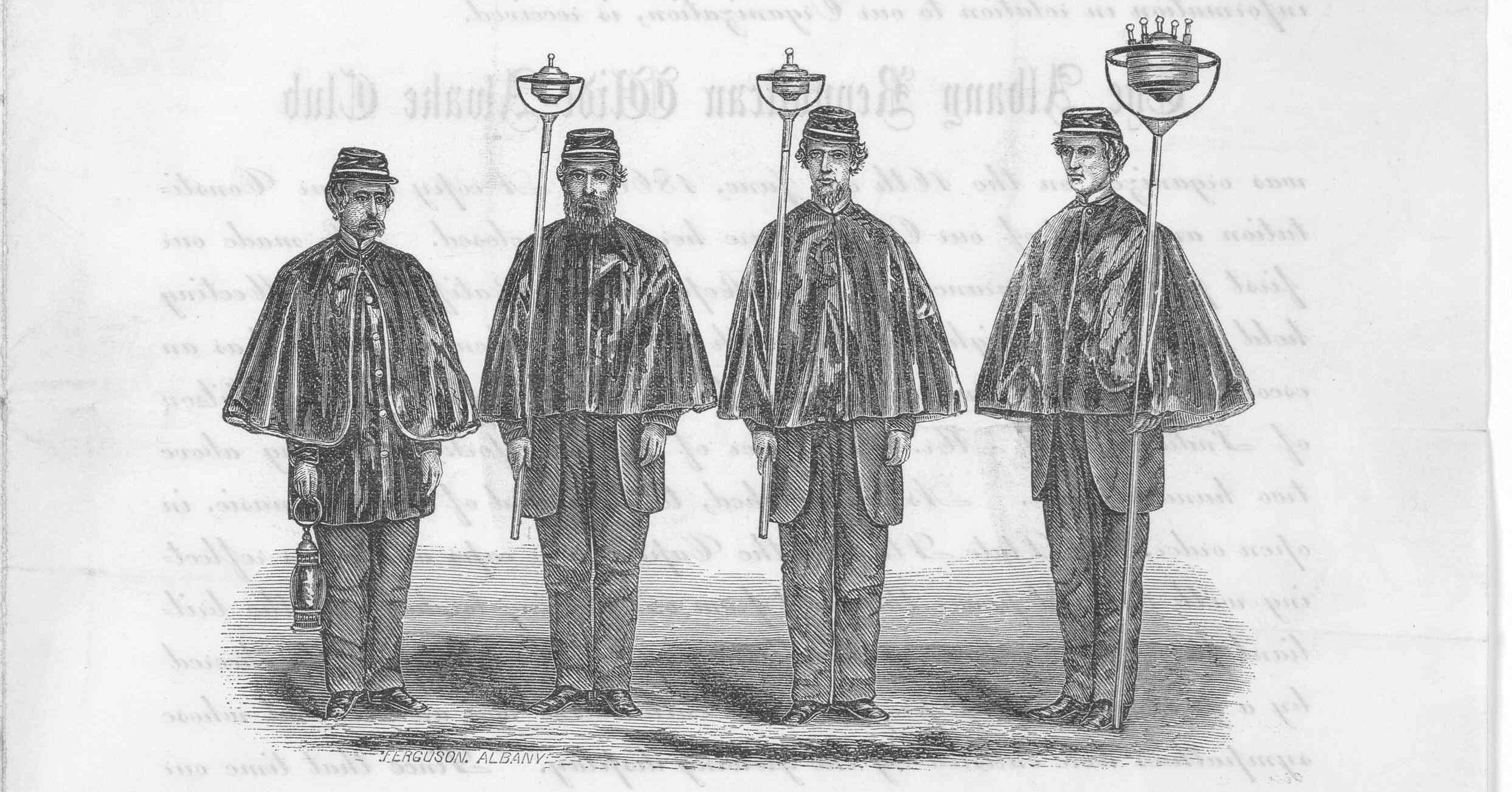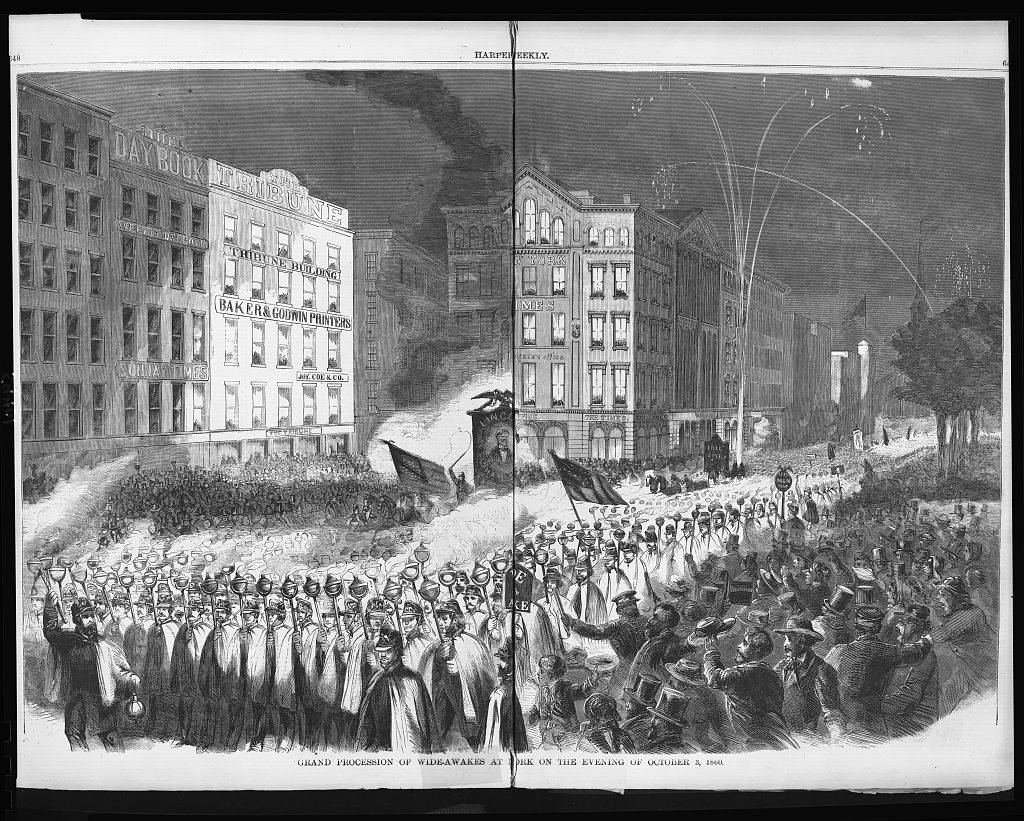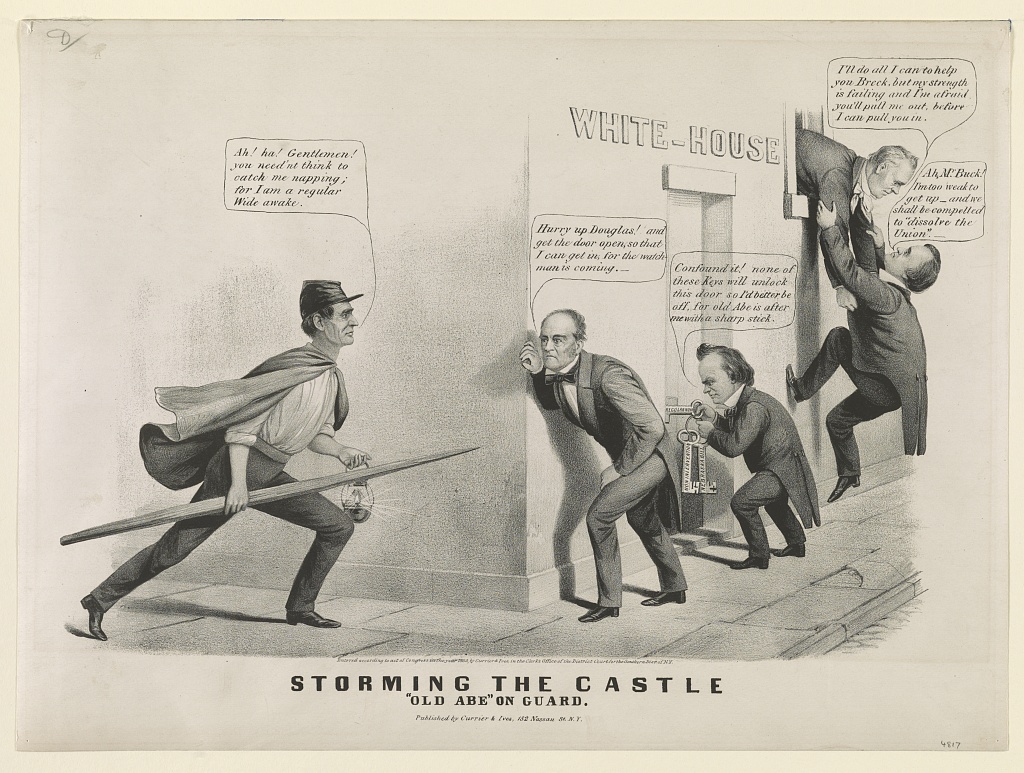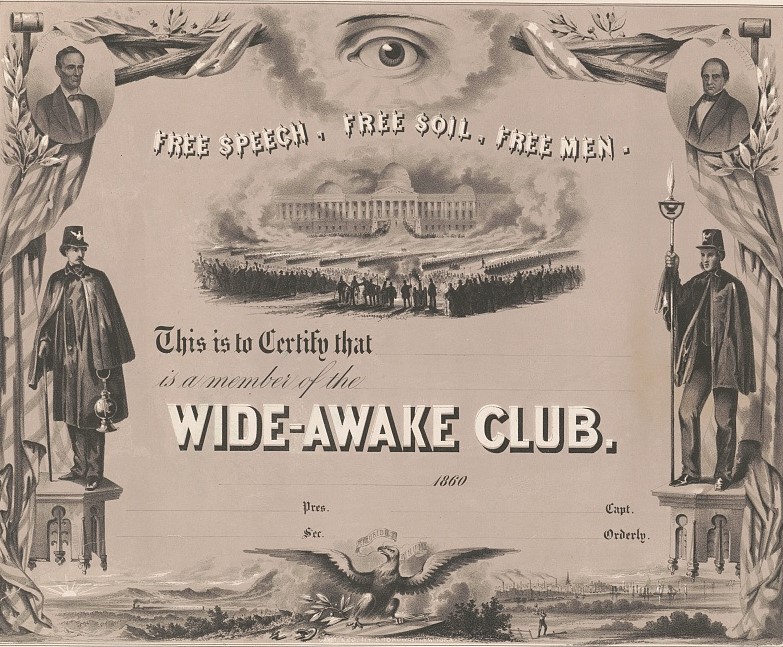It is difficult not to take a political stance while discussing politics, especially when discussing the political views of our country’s forefathers. The decisions of our ancestors have, for better and for worse, shaped the direction and attitude of our country in the present, a present which contains two parties that echo familiar dogmas from the past.
Among the most recent developments in this political climate is the establishment of, what some call, “woke culture,” which has connotations of those obsessed with political correctness. Some support and others reject this way of thought. Undoubtedly, however, It has caused a major division in schools, government, and social structures. While many assume this ideology is unique to the present-day political climate, it is strangely a relic of the past. Too, it's a relic that came from the support of a man that is, today, almost universally beloved.
The story begins in Hartford, Connecticut on the tense evening of March 3rd, 1860. A political rally is being held in preparation for the upcoming presidential election, an election that would determine the future of America. Tensions between the northern and southern states is rising - many are even beginning to question their identities as a unified America. As one of the candidates leave the stage, five young men dressed in heavy black cloaks surround him. These young men, hardly older than boys, each wield long, six-foot poles with a whale-oil lantern affixed to its tip. Rather than intimidated, however, this candidate finds delight in the display, knowing that these boys are here to protect him. As he takes his walk back to the hotel, this soon-to-be president was among the first to be protected by the vigil of the Wide Awakes.
Beginning that spring of March 1860, the Wide Awakes was a youth organization that centered their attention and support of political individuals that proposed strict, anti-slavery policies. Their symbol, an eye that looked downwards from above, represented the ideals of the organization – they would always be alert to injustice and the dangers that the country faced. They believed that, if they could gather swathes of like-minded individuals, they could help sway political opinion towards specific candidates through the use of parades, vigils, and public gatherings.Their supported candidates, nearly always of a Republican leaning view, often faced backlash for their socially progressive policies, many times faced with threats of violence. No candidate was more beloved by the Wide Awakes than the then-controversial Abraham Lincoln. A preserved pamphlet from Elmira, New York sheds light on the mission of this organization that notes this exact purpose for their cause.
-

Albany Republican Wide-Awake Club. Circular Regarding Uniform and the Organization of the Club. 186-?. Albany, 1860. Pdf. Retrieved from the Library of Congress, <www.loc.gov/item/2020784086/>.
-

Lincoln, Abraham. Abraham Lincoln papers: Series 1. General Correspondence. 1833 to 1916: Elmira New York Republican Wide-Awakes, Friday,Leaflet. August 3, 1860. Manuscript/Mixed Material. Retrieved from the Library of Congress, <www.loc.gov/item/mal0347000/>.
In its composition, the Wide Awakes was a type of paramilitary organization, composed of Captains and Lieutenants. However, they were not, at that point, associated with any actual military presence. Though it is still unclear if the Wide Awakes held any official national organization, local chapters quickly appeared all across the country. Neighboring communities, inspired by these groups, would then create chapters of their own - it spread like political wildfire. By November 1860, every state in the Union was able to boast about a Wide Awake chapter within its territory. At the height of its influence, the Wide Awakes were estimated at over 500,000 members. During one rally in Chicago, over 10,000 members gathered to show their political support.

Grand procession of Wide-Awakes at New York on the evening of October 3, .Republican Wide Awakes in N.Y. - Lincoln-Hamlin Campaign Printing-House Square Park Row and Nassau St. Photograph. Retrieved from the Library of Congress, <www.loc.gov/item/99614201/>.
The Wide Awakes were viewed as a very real threat to the American South, and for good reason. Following Lincoln's election and the secession of the Confederate states, the Wide Awakes were among the many that were called to aid in Union efforts to reunify the country. In some cases, entire chapters took aims to participate. The formation of the Union army gave these same young men an opportunity to belong to a legitimate military organization, and opportunity to actually take up arms to fight for their cause and country. As a result, the purpose of the Wide Awakes was made nearly obselete, their mission to elect a Republican president complete. As a result, the organization would never again reach the heights that it had during that year of political fervor.
Yet, in that brief moment of time, this young group changed history. It supported an unlikely candidate from a nearly brand new political party (remember, the Republican party had only been formed a few years earlier), and this candidate won. During the height of his presidential election, being a member of the Wide Awakes was a source of pride for many young American men (and in many cases, women). They were attached to the idea and values of their country, and were often prepared to do anything they could to defend it. In an era where many were socially "asleep" to the inequalities that many in the country faced, this organization vowed to remain Wide Awake.
 Currier & Ives, and Louis Maurer. Storming the castle. "Old Abe" on guard. [New York: Currier & Ives] Photograph. Retrieved from the Library of Congress, <www.loc.gov/item/2003674583/>.
Currier & Ives, and Louis Maurer. Storming the castle. "Old Abe" on guard. [New York: Currier & Ives] Photograph. Retrieved from the Library of Congress, <www.loc.gov/item/2003674583/>.
Yet, most people today would not like to be called "woke." Despite being a term that is meant to refer to someone who is understanding and aware of prejudice and discrimination, it is now more often used as denigration. Ironically, this term sees the most usage in this connotation by the very party that popularized its very idea. This contradiction between past an present provides an interesting perspective to share with students. Together, a classroom could explore:
- What caused the formation of the popular political parties that we have today?
- What caused former political parties to fall out of fashion?
- What events have caused political parties to shift their ideologies over time?
- How have these political ideologies shifted over time?
- What are the implications of these political shifts?
As teachers, students, and any individual that has an investment in this country, it's important to remember the familiar mantra: history often repeats itself. Why else would we spend so much time focusing on history education? But it's also important to remember that history doesn't always reach the same conclusion. In the past, the Wide Awakes helped secure the foundation of rights for enslaved Black Americans, support a political candidate that believed in the value of liberty, and gave purpose to hundreds of thousands of young men across the nation. Today, the "woke" undergo a barrage of political and social scrutiny. In less than two centuries, political ideologies have warped into entirely new entities, separated from the values that they used to represent at their formation. This is inevitable - things change! But how do we reconcile that when we try to claim that we belong to the same groups that our ancestors did? They did not place value in the same ways that we do because they faced different issues with different desired outcomes. But it's important to remember that the outcomes encouraged by the Wide Awakes were objectively good; they provided the largest boon to civil rights this country has ever known. So what truly matters more: allegiance to a political group whose values will inevitably shift and change or allegiance to a set of outcomes that will better this country? It is my hope that common sense dictates the latter.
